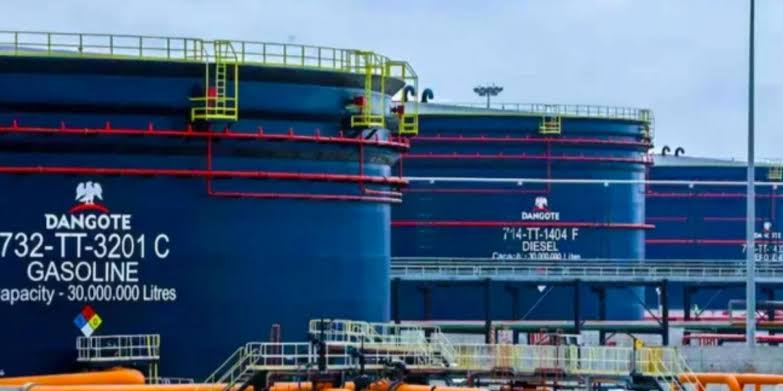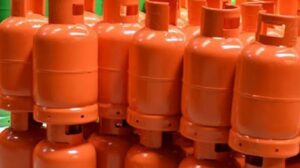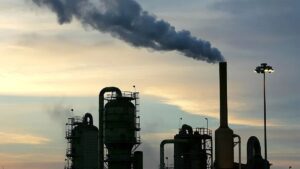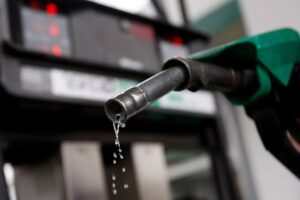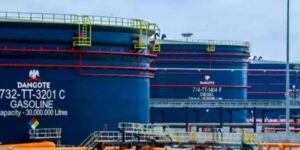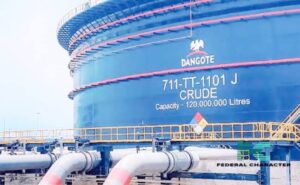Nigeria continues to rely heavily on imported petrol despite a sharp rise in local refining output from the Dangote Refinery and other domestic plants, new data from the Nigerian Midstream and Downstream Petroleum Regulatory Authority (NMDPRA) has shown.
Between October 2024 and October 10, 2025, the country consumed about 613.6 million litres of petrol. Of this volume, 377.5 million litres — roughly 63 percent — came from imports, while 236.1 million litres were supplied by local refineries.
The figures reveal that although domestic refining is growing fast, imported fuel still dominates Nigeria’s supply chain. However, the data highlights steady progress: local output almost doubled within a year, increasing from 9.6 million litres per day in October 2024 to 18.9 million litres daily by October 2025.
During the same period, import volumes fell by about 67 percent — from 46.4 million litres per day to 15.1 million litres. The NMDPRA attributed the improvement to rising activity at the 650,000-barrel-per-day Dangote Refinery, which now supplies between 15 and 20 million litres of petrol daily to the domestic market.
Analysts say the refinery’s contribution has reshaped Nigeria’s fuel landscape, reducing foreign exchange spending on imports and strengthening energy security.
Petroleum.ng’s Chief Executive Officer, Olatide Jeremiah, described the progress as a major milestone but noted that more work remains to be done. He said local refiners need unrestricted access to crude oil in naira to sustain and expand production.
“Nigeria should not still be importing over half of its daily fuel needs when it produces the crude and hosts Africa’s largest refinery,” he said. “Ensuring crude availability to local refiners will stabilise supply and help bring down pump prices.”
Despite the improvements, total fuel supply fluctuated in 2025, with output falling from 55.2 million litres in May to 34 million litres by October, a sign of ongoing logistical and maintenance challenges.
Industry observers believe that as domestic refineries continue to scale up and the government implements policies favouring local processing, Nigeria could achieve fuel self-sufficiency within the next few years.

